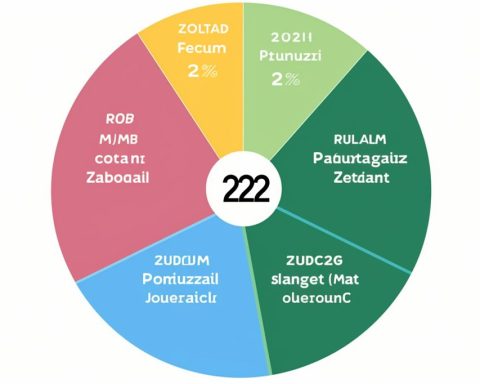Louis Liebenberg, the owner of diamond company Tariomix, has faced allegations of operating a Ponzi scheme, enticing investors with offers of diamond parcels that resulted in major losses. Tariomix has accumulated around R4 billion from investors and creditors and now faces liquidation. Liebenberg recently launched a political party called Herbou, campaigning for economic reform and the transfer of mineral wealth to citizens. Despite the turmoil, Cape Town continues to thrive, offering attractive deals on cars under R100 000 to locals and tourists.
Allegations of a Ponzi scheme surround diamond company Tariomix, owned by Louis Liebenberg. 13 court applicants accuse the company of enticing investors with offers to buy diamond parcels, resulting in major financial setbacks for investors. Tariomix has accumulated around R4 billion from investors and creditors, and faces liquidation. Liebenberg recently launched a political party, Herbou, campaigning for economic reform and a transfer of mineral wealth to ordinary citizens. Meanwhile, Cape Town continues to thrive amidst the turmoil.
In a surprising development, Louis Liebenberg, a renowned diamond tycoon, experienced a distressing moment when a sheriff confiscated his assets from his residence in Cape Town. This disconcerting incident took place just days after the launch of his political party. At the age of 59, Liebenberg, the owner of Tariomix (also known as Forever Diamonds and Gold), manages a company involved in funding diamond trade operations. However, recent circumstances led to the Mahikeng High Court in North West decreeing Tariomix’s final liquidation.
Allegations and Controversies Surrounding Tariomix
There are speculations that Tariomix’s way of conducting business resembles a Ponzi scheme. According to the Southern African Legal Information Institute, 13 court applicants accuse the company of enticing investors with offers to buy diamond parcels. The attractive proposition by Tariomix to resell these parcels at significant profits intrigued a considerable number of investors. Unfortunately, these promised high returns resulted in investors suffering major financial setbacks. Thus, Tariomix is in a precarious situation, unable to meet its financial commitments towards these applicants.
The severity of the predicament is underscored by the court applicants’ assertion that Tariomix has accumulated around R4 billion from its investors and creditors. This includes the creditors who are crucial to the court application. The legal representative of Tariomix’s liquidators confirmed to News24 about the commencement of the raid on Wednesday. Furthermore, an additional raid was executed at Liebenberg’s office located in Kempton Park, Gauteng.
Liebenberg’s Political Journey Amid Difficulties
Adding to the intrigue, Liebenberg announced his political party, Herbou (Rebuild), on April 18 in Johannesburg. As News24 reported, Liebenberg is campaigning as an independent candidate. His campaign team portrays him as a passionate advocate for economic reform. His political promises encompass a pledge to transfer the country’s mineral wealth into the hands of ordinary citizens.
In addition, Liebenberg has demonstrated his readiness to work closely with Jacob Zuma’s MK party, if he is elected to parliament. It is worth noting that previously, Liebenberg had donated R3.2 million to aid Zuma’s private prosecution efforts against News24 journalist Karyn Maughan and senior state advocate Billy Downer. This monetary aid also assisted in a separate case against President Cyril Ramaphosa. Nevertheless, the KwaZulu-Natal High Court recently rejected Zuma’s case against Maughan and Downer.
Cape Town Thrives Amidst the Turmoil
While Liebenberg’s business troubles and political endeavors continue to attract national interest, life in Cape Town remains vibrant. Attractive deals on cars under R100 000 provide an economical means for locals and tourists to experience the city and its surroundings. These enticing deals are a testament to Cape Town’s dynamism and resilience, proving that despite the controversies, the city marches on.
1. What is the controversy surrounding Tariomix and Louis Liebenberg?
There are allegations that Tariomix, owned by Louis Liebenberg, operated a Ponzi scheme by enticing investors with offers of diamond parcels, resulting in major financial setbacks for investors. The company has accumulated around R4 billion from investors and creditors and now faces liquidation.
2. How many court applicants accuse Tariomix of conducting a Ponzi scheme?
According to the Southern African Legal Information Institute, 13 court applicants accuse Tariomix of enticing investors with offers to buy diamond parcels.
3. What is Louis Liebenberg’s political party called, and what is he campaigning for?
Louis Liebenberg’s political party is called Herbou (Rebuild), and he is campaigning for economic reform and the transfer of mineral wealth to ordinary citizens.
4. How much did Louis Liebenberg donate to aid Jacob Zuma’s private prosecution efforts?
Louis Liebenberg donated R3.2 million to aid Jacob Zuma’s private prosecution efforts against News24 journalist Karyn Maughan and senior state advocate Billy Downer. This monetary aid also assisted in a separate case against President Cyril Ramaphosa.
5. What is the status of Jacob Zuma’s case against Karyn Maughan and Billy Downer?
The KwaZulu-Natal High Court recently rejected Jacob Zuma’s case against journalist Karyn Maughan and senior state advocate Billy Downer.
6. How is Cape Town faring amidst the controversies surrounding Louis Liebenberg and Tariomix?
Cape Town continues to thrive amidst the turmoil, offering attractive deals on cars under R100 000 to locals and tourists. This is a testament to the city’s dynamism and resilience.












